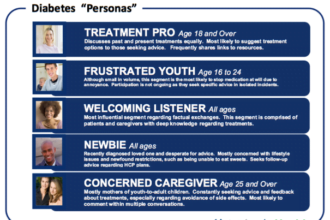Medscape recently released their assessment of how the trend toward deployment of EHRs is proceeding within the healthcare community. They had a total of more than 21,000 respondents across 25 specialties. Based on their assessment, electronic health record (EHR) use has reached critical mass and has become more-or-less an accepted part of medical practice.
Medscape recently released their assessment of how the trend toward deployment of EHRs is proceeding within the healthcare community. They had a total of more than 21,000 respondents across 25 specialties. Based on their assessment, electronic health record (EHR) use has reached critical mass and has become more-or-less an accepted part of medical practice. The degree of use of EHRs is quite high with 82 percent of respondents either using or deploying an EHR. Such high levels are in distinct contrast to the Medscape’s 2009 Reader’s Choice EHR Survey, which revealed that only 38 percent of respondents were using an EHR. At the time, more than a third of the physicians indicated that they didn’t have an EHR, nor did they plan to get one. In the 2012 survey, a mere 6 percent of respondents planned to ignore the move toward use of an EHR. And, it’s clear that the government incentive programs had a lot to do with physician acceptance of EHR use. Who can ignore the incentive payments?
Among the physicians, the primary care providers use the EHR the most. Among internists,
family physicians and pediatricians, the use of implementation of EMRs is running 28 percent, 25 percent, and 21 percent; respectively, with another 12 percent, 11 percent, and 11 percent planning to purchase an EHR within the next year or so; again, respectively. That is a fairly dramatic increase in use over the last several years. The specialists with the least amount of EHR use are rheumatologists, critical care physicians and plastic surgeons.
If we turn to which systems the physicians are using, it is not much of a surprise to those of in the field. Epic dominates the EHR field with 22 percent penetration of the market, followed by Allscripts (10 percent) and Cerner (9 percent). There are a smattering of other systems used some of which are unique to particular specialties. Overall, the number of EHRs used included 17 major brands along with a group of “we-wrote-our-own” systems.
The Medscape survey also asked physicians to rate their EHRs on a scale of 1 (dislike most) to 5 (like most) for 12 factors, including:
- easy to learn
- ease of data entry
- overall ease of use
- ease of EHR implementation
- reliability
- adequacy of vendor training program
- vendor continuing customer service
- interactivity with other office systems
- value for the money
- physician overall satisfaction
- staff overall satisfaction
- appearance/overall usefulness of the end product
If you are still in the throes of determining which direction to take related to EHR use in your own clinic or medical group, a review of the Medscape findings would definitely be a worthwhile exercise.
Another interesting finding is that the choice of EHR by the physicians is very heavily influenced by practice size. The overall satisfaction rankings for EHRs reflected the practice-size selection variable with larger (26+ physicians) practices selecting VA-CPRS, Epic, e-MDs, and Medent as their top choices. The smaller practices, on the other hand, gave high rankings to Amazing Charts, VA-CPRS, and Practice Fusion.
In terms of practice impact, the results are also very clear. A mere 5 percent of respondents said the EHR had no discernible effect on their practice. Now, the question is, “Was the impact positive or negative?” More doctors said the EHR decreased rather than increased productivity (26 percent vs. 15 percent). At the same time, nearly a quarter of physicians noted an increased efficiency (23 percent). On the practice revenue side, 6 percent of the respondents noted that use of the EHR increased practice revenue. Additionally, an increase in recognition of medical errors was noted by 5 percent of respondents.
On the issue of whether or not the use of EHR decreased, increased, or had no effect on the doctor-patient relationship, the findings were essentially evenly split. Slightly more doctors said the use of the EHR had a positive effect (36 percent) versus another group that cited a negative effect (30 percent). Of doctors who said it had a negative impact, the vast majority at 82 percent indicated it was because of less eye contact with the patient.
In fact, in a conversation with a lay person on the plane yesterday about the use of EHRs by her personal physician, her biggest complaint was that her physician “stares at the computer rather than talking with me.” It’s clear that the docs are still learning how to use the EHR so that it supplements the practice rather than detracts from the practice of medicine
Costs varied considerably among the practices reporting the use of EHR systems. However, the data seems to be highly unreliable from my perspective in that many of the physicians were not involved in the selection of their systems are simply unaware of the installation cost. So, the data on this front is questionable. However, of the physicians reporting, the range of implementation costs was between $10,000 and $35,000 per physician — an estimate that in my experience is too low.
One of the controversies related to the use of the EHR is whether or not its use leads to greater efficiency in the practice of medicine. In fact, the deployment of EHRs on a national scale emanated from the assertion the quality would increase and costs would decrease through the appropriate use of EHRs. But, the studies have shown mixed results. For example, the Cambridge Health Alliance showed that doctors using EHRs ordered 40 percent more tests than those using paper records. Alternatively, research from the Massachusetts General Hospital in Boston found that the use of EHRs helped physicians avoid ordering some tests. So, the results are still out on whether or not EHRs help efficiency. In the Medscape survey, more than 66 percent of the respondents indicated no difference in the amount of tests ordered in their practice. Of interest was the fact that, again, among the respondents, an almost equal number of doctors were ordering more tests (8 percent) and fewer tests (9 percent). So, we await further analysis.
Another issue that has lurked in the background of EHR use is whether or not data breaches will increase because of the use of these systems. According to the Medscape survey, more than three fourths of respondents had no worries about patient privacy issues related to their EHR use. The one issue that percolated through the survey is that physician practices need to update their HIPAA privacy statements. In many cases, the doctors noted that such updates had not occurred.
Finally, meaningful use has become the focus of most physician practices in large measure because it serves as the benchmark in qualifying for the incentive payments under the Health Information Technology for Economic and Clinical Health (HITECH) Act. More than 75 percent of physicians either intend to attest to the meaningful use requirements or intend to do so over the next year. Meeting this requirement will be very important. According to the Centers for Medicare & Medicaid Services more than 110,000 physicians and other healthcare providers will be receiving Medicare and Medicaid bonus payments for adopting EHRs under the meaningful use requirements.
The end result is that physicians are clearly moving toward adoption of EHR systems and the impact on healthcare delivery will be significant. While the final impact is still a bit unclear, the evidence is clearly pointing in the direction of reduced costs, increased quality and enhanced service capability. For those of us who research these areas, the field is ripe with opportunity for helping healthcare organizations be more effective in their deployment and implementation practices. Also, the utilization practices of physicians in all types of practices needs further study. The inflection point is occurring. We need to embrace it and help make the process better.







